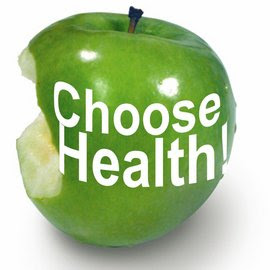Is Your Job Making You Cross Eyed – Three Ways to Reduce Eye Fatigue?
 How many hours do you spend in front of a computer everyday? Love them, or hate them, computers are an everyday part of our lives. Unfortunately, for many people, this is accompanied by regular occurrences of:
How many hours do you spend in front of a computer everyday? Love them, or hate them, computers are an everyday part of our lives. Unfortunately, for many people, this is accompanied by regular occurrences of:
eye fatigue and strain,
visual disturbances,
and headaches.
Before accepting this as inevitable and popping on the glasses, there are many nutritional strategies you can implement to improve eye health and prevent strain and fatigue.
Boost Energy and Your Eyes With Taurine
While you may have heard of Taurine in supposedly *healthy* energy drinks, there is more to this amino acid than just an energy boost. Known to improve cardiovascular health, digestive health and immune fiction, Taurine is a major contributor to optical health. Dietary consumption of Taurine can help to:
alleviate eye fatigue,
prevent age related macular degeneration,
prevent cataracts.
The best source of Taurine is not energy drinks, but rather fish and most meats. Toxins including mercury, synthetic hormones, and consumption of alcohol, all destroy or interfere with absorption of Taurine and make supplementation necessary to obtain sufficient levels.
Berries, Antioxidants and Visual Superfood
Sometimes you wonder whether there is anything berries aren’t good for! If you’re not enjoying berries as part of your daily diet, start including these super foods today to unleash your full health potential.
In addition to tounge-twisting names like Lutein, Anthocyanosides, and Proanthocyanidins; many of the nutrients in berries are powerful contributors to visual health. Much of the benefit of berries comes from their antioxidant properties, helping to protect your eyes from damage.
If berries aren’t exactly your thing, many antioxidant formulas contain these active ingredients in tablet form. Make sure you choose a reputable brand that has high concentrations of the active ingredients.
Zinc, More Than Just a Sunscreen
The closest many people get to Zinc can often be in sunscreens, but although the health benefits of putting zinc cream on your eyes may be a little uncertain, increasing your Zinc intake is an altogether different thing. In fact, not only is Zinc a major requirement for protection of the optic nerve, it has also been shown to be a great way to guard against:
Age related macular degeneration, and,
Cataracts
Fortunately, Zinc is also very easy to obtain in the diet. Egg yolks and many meat products are naturally high in Zinc, as are most nuts. Ginger, gives your antioxidant super juices a little extra by adding a powerful Zinc kick. Low Zinc levels can sometimes lead to problems absorbing dietary Zinc, in this case supplementation is necessary to help restore normal levels.
Miso Soup for the Eyes, Just Like Chicken Soup for a Cold
If you’ve never tried miso soup, this Japanese favourite may be just the addition you need to reduce eye fatigue.
Many miso soups are made from a bonito stock. This dried, small fish, is a popular addition to a healthy diet. Bonito is most commonly used for it’s cardiovascular benefits including lowering blood pressure and improving circulation. It is this improved circulation, particularly into peripheral areas and the eyes, that makes bonito such a great way to improve optical health and reduce visual fatigue.
If you’re not keen on Miso soups, bonito based supplements are readily available in most health food stores, or online.









